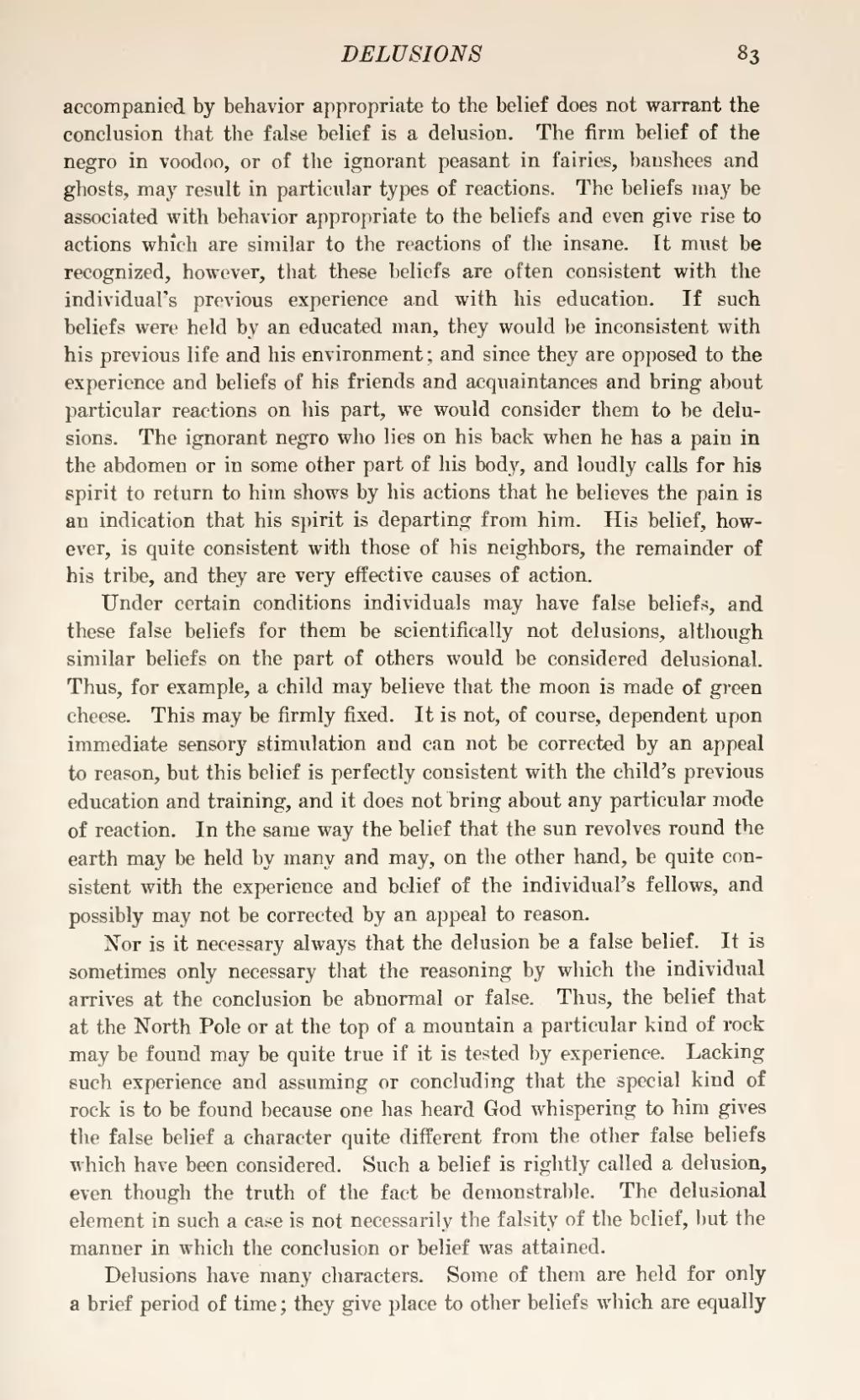accompanied by behavior appropriate to the belief does not warrant the conclusion that the false belief is a delusion. The firm belief of the negro in voodoo, or of the ignorant peasant in fairies, banshees and ghosts, may result in particular types of reactions. The beliefs may be associated with behavior appropriate to the beliefs and even give rise to actions which are similar to the reactions of the insane. It must be recognized, however, that these beliefs are often consistent with the individual’s previous experience and with his education. If such beliefs were held by an educated man, they would be inconsistent with his previous life and his environment; and since they are opposed to the experience and beliefs of his friends and acquaintances and bring about particular reactions on his part, we would consider them to be delusions. The ignorant negro who lies on his back when he has a pain in the abdomen or in some other part of his body, and loudly calls for his spirit to return to him shows by his actions that he believes the pain is an indication that his spirit is departing from him. His belief, however, is quite consistent with those of his neighbors, the remainder of his tribe, and they are very effective causes of action.
Under certain conditions individuals may have false beliefs, and these false beliefs for them be scientifically not delusions, although similar beliefs on the part of others would be considered delusional. Thus, for example, a child may believe that the moon is made of green cheese. This may be firmly fixed. It is not, of course, dependent upon immediate sensory stimulation and can not be corrected by an appeal to reason, but this belief is perfectly consistent with the child’s previous education and training, and it does not bring about any particular mode of reaction. In the same way the belief that the sun revolves round the earth may be held by many and may, on the other hand, be quite consistent with the experience and belief of the individual’s fellows, and possibly may not be corrected by an appeal to reason.
Nor is it necessary always that the delusion be a false belief. It is sometimes only necessary that the reasoning by which the individual arrives at the conclusion be abnormal or false. Thus, the belief that at the North Pole or at the top of a mountain a particular kind of rock may be found may be quite true if it is tested by experience. Lacking such experience and assuming or concluding that the special kind of rock is to be found because one has heard God whispering to him gives the false belief a character quite different from the other false beliefs which have been considered. Such a belief is rightly called a delusion, even though the truth of the fact be demonstrable. The delusional element in such a case is not necessarily the falsity of the belief, but the manner in which the conclusion or belief was attained.
Delusions have many characters. Some of them are held for only a brief period of time; they give place to other beliefs which are equally
